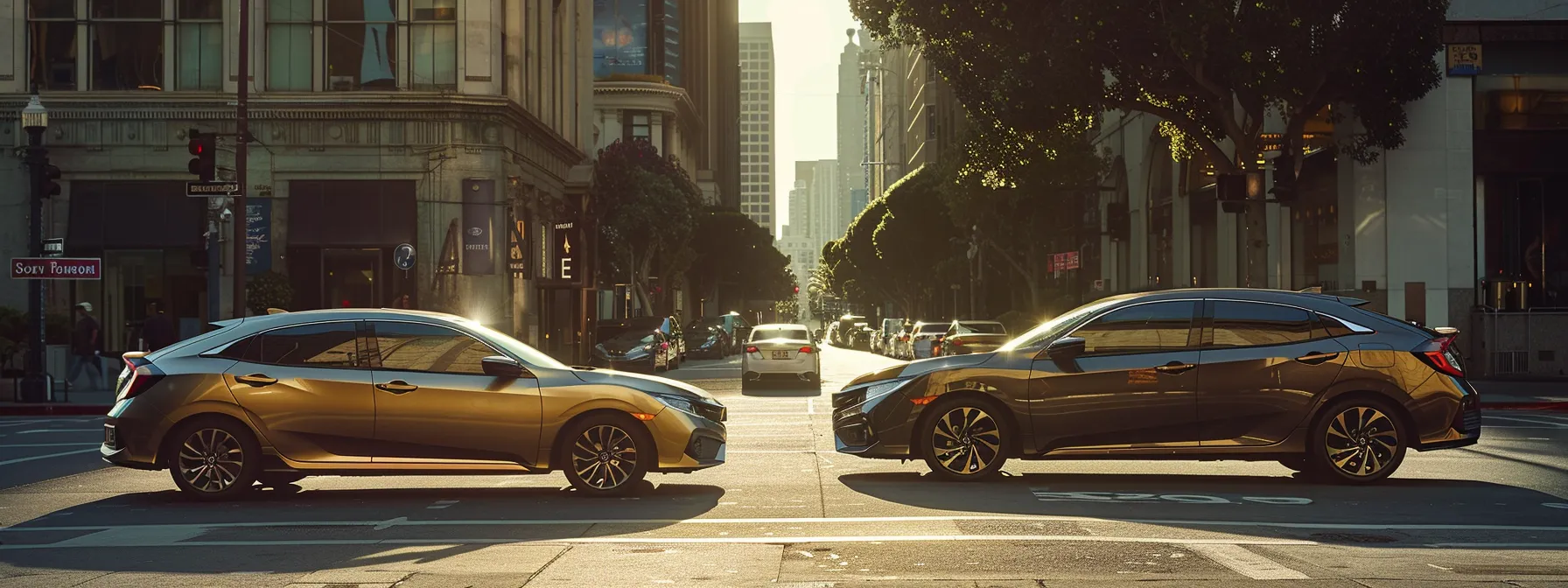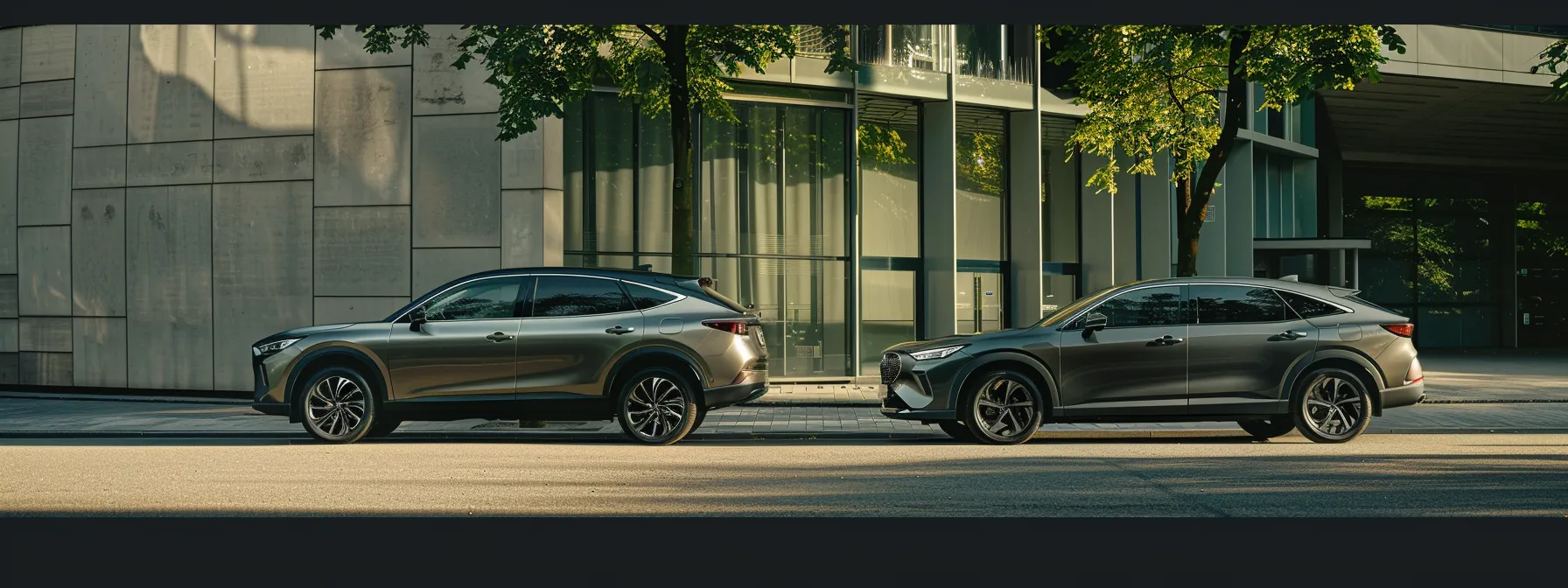When it comes to buying or selling a used car, many people believe that mileage is the only factor that determines value. In reality, mileage is just one piece of the puzzle. This article will explore why mileage matters in car valuation, significant mileage milestones that affect pricing, and how to balance mileage with other factors like depreciation and warranty. By understanding these elements, you can make informed decisions that help you maximize your investment, whether you’re looking at a luxury car or a sports car. If you’re concerned about how mileage impacts your vehicle‘s worth, this guide will provide the insights you need.
Why Mileage Matters in Car Valuation

Mileage plays a crucial role in car valuation, impacting how much a vehicle depreciates over time. Understanding odometer readings helps you gauge a car’s market value, as lower mileage often indicates less wear and tear. This section will explore how mileage affects the average vehicle‘s condition, the relationship between supply and demand, and the implications for classic car replacement.
Understanding Mileage as a Key Depreciation Factor
Mileage is a significant factor in car valuation because it directly influences the vehicle‘s longevity and overall condition. When you consider car finance options, lower mileage often means less wear and tear, making the vehicle more appealing and potentially increasing its resale value. If you’re looking to replace your current vehicle, understanding how mileage affects market value can help you make informed decisions about which vehicles to consider, ensuring you get the best transport option for your needs.
How Odometer Readings Influence Market Value
Odometer readings are a key indicator of a vehicle‘s ownership history and overall condition. When you see lower mileage, it often suggests that the car has experienced less wear and tear, which can mean that essential components like the gear and clutch are in better shape and may not need to be replaced soon. This can significantly influence the market value, making such vehicles more attractive to potential buyers who want a reliable option without the worry of immediate repairs.
The Relationship Between Mileage and Vehicle Wear
The relationship between mileage and vehicle wear is straightforward: as the miles increase, so does the wear on the vehicle. Higher mileage often indicates that essential components, such as the engine and transmission, have experienced more stress, which can affect the car’s overall market value. When considering a purchase, it’s wise to pay attention to the mileage; a vehicle with lower miles may not only be in better condition but also hold its valuation better over time, sparking greater interest from potential buyers down the road.
Mileage tells a story, but not all chapters are equal. Let’s look at the key milestones that can change a car’s worth.
Significant Mileage Milestones That Affect Pricing

Common mileage benchmarks in the automotive market can greatly influence pricing. High mileage often leads to a decrease in resale value, while low mileage enhances a vehicle‘s reputation and appeal. Additionally, factors like the mot test history and any accident reports can further impact how potential buyers perceive a used car’s worth. Understanding these milestones helps you make informed decisions when buying or selling a vehicle.
Common Mileage Benchmarks in the Automotive Market
In the automotive market, common mileage benchmarks can significantly influence a vehicle‘s pricing. For instance, cars with around 30,000 miles are often seen as prime options, as they typically have a good balance of reliability and remaining warranty, making them appealing to buyers. On the other hand, vehicles that have surpassed 100,000 miles may raise concerns about maintenance needs, such as oil changes and potential repairs, which can affect their resale value. Additionally, if you’re considering a lease or an electric car, understanding these mileage milestones can help you make informed decisions that align with your budget and driving habits.
How High Mileage Impacts Resale Value
High mileage can significantly impact a vehicle‘s resale value, often leading to decreased demand among consumers. When a car has a lot of miles on the odometer, potential buyers may worry about the condition of the engine and the likelihood of future repairs, which can make them hesitant to purchase. This is especially true in auction settings, where vehicles with lower mileage tend to attract more interest and higher bids, while those with high mileage may struggle to find buyers willing to pay a fair price.
The Perception of Low Mileage in Used Cars
The perception of low mileage in used cars is often a significant factor in your decision-making process. When you see a vehicle with lower miles, it typically suggests less wear on essential components, including the steering wheel and engine, making it a more appealing option. Buyers often feel more confident in their purchase, knowing that a car with lower mileage is likely to require fewer repairs and maintenance, ultimately leading to a better overall value.
Mileage is just one piece of the puzzle. To truly understand a car’s worth, you must consider other factors that shape its value.
Balancing Mileage With Other Valuation Factors
When evaluating a vehicle’s price, it’s essential to balance mileage with other factors. Comparing age and mileage can reveal insights about a car’s overall value. Additionally, a solid maintenance history can enhance a vehicle’s appeal, even if it has higher mileage. Understanding how the vehicle’s condition can mitigate the effects of mileage will help you find the best car value estimator for your needs.
Comparing Age and Mileage in Car Valuation
When comparing age and mileage in car valuation, it’s important to recognize how both factors influence a vehicle’s worth. A newer car with higher mileage may still be a better option than an older car with lower mileage, especially if it has been well-maintained. At Indy Auto Team, you can explore various vehicles and even Pre-qualify for financing, ensuring you find a car that fits your budget and needs. Additionally, checking resources like Edmunds Car Reviews can provide insights into how age and mileage affect specific models, helping you make an informed decision.
The Role of Maintenance History Alongside Mileage
When evaluating a vehicle‘s value, maintenance history plays a crucial role alongside mileage. A well-documented maintenance record can enhance a car’s appeal, even if it has higher mileage, as it indicates that the vehicle has been cared for and is less likely to require immediate repairs. For instance, if you find a car with 80,000 miles but a complete service history, it may be a more reliable choice than a similar model with only 50,000 miles and no maintenance records, giving you peace of mind in your purchase.
How Vehicle Condition Mitigates High Mileage Effects
The condition of a vehicle can significantly influence its value, even if it has higher mileage. For instance, a car with 90,000 miles that has been meticulously maintained may be a better investment than a similar model with only 60,000 miles but a poor service history. When you assess a used car, always consider its maintenance records and overall condition, as these factors can provide reassurance about its reliability and longevity, helping you make a more informed decision.
Mileage matters, but it’s not the only thing that counts. Let’s explore how you can keep your car’s value strong, even as the miles add up.
Preserving Car Value Despite Increasing Mileage
Regular maintenance practices are essential to offset the impact of mileage on your vehicle‘s value. Documenting service records can enhance your car’s appeal, showing potential buyers that it has been well cared for. Additionally, strategic upgrades and repairs can significantly boost your vehicle‘s worth, making it a more attractive option in the used car market.
Regular Maintenance Practices to Offset Mileage Impact
To preserve your car’s value despite increasing mileage, regular maintenance is key. Simple practices like timely oil changes, tire rotations, and brake inspections can keep your vehicle running smoothly and looking great. By documenting these services, you not only enhance your car’s appeal to potential buyers but also provide reassurance that it has been well cared for, making it a more attractive option in the used car market.
Documenting Service Records for Better Valuation
Documenting service records is essential for enhancing your vehicle‘s valuation, especially as mileage increases. When you keep a detailed log of maintenance and repairs, it shows potential buyers that your car has been well cared for, which can significantly boost its appeal. For instance, if you have records of regular oil changes and tire rotations, buyers will feel more confident in the vehicle‘s reliability, making it easier for you to command a better price when it’s time to sell.
Upgrades and Repairs That Enhance Vehicle Worth
Investing in upgrades and repairs can significantly enhance your vehicle‘s worth, even as mileage increases. For example, replacing worn-out tires or upgrading to a more efficient exhaust system not only improves performance but also makes your car more appealing to potential buyers. By keeping your vehicle in top condition and addressing any maintenance needs promptly, you can reassure buyers of its reliability, ultimately helping you command a better price when it’s time to sell.
As you consider how to keep your car’s value intact, remember that mileage plays a crucial role in its worth. Next, let’s explore how to evaluate mileage when buying a used car, ensuring you make a smart choice.
Evaluating Mileage When Buying a Used Car
When evaluating mileage while buying a used car, it’s essential to assess if the mileage aligns with the vehicle‘s age. Look for signs of odometer tampering, which can misrepresent a car’s true condition. Additionally, asking the seller specific questions about the vehicle‘s mileage can provide valuable insights, helping you make a more informed decision.
Assessing if Mileage Is Consistent With Vehicle Age
When assessing if mileage is consistent with a vehicle‘s age, it’s important to consider the average annual mileage, which typically ranges from 12,000 to 15,000 miles. If you find a car that’s five years old with only 30,000 miles, it may raise red flags about its usage or maintenance history. Conversely, a well-maintained vehicle with higher mileage could still be a reliable choice, so always look for signs of care and service records to ensure you’re making a sound investment.
Signs of Odometer Tampering to Watch For
When you’re evaluating a used car, it’s important to be aware of signs of odometer tampering. Look for inconsistencies in the vehicle‘s maintenance records or wear and tear that doesn’t match the mileage displayed. For example, if the car shows low mileage but has worn-out pedals or a frayed steering wheel, it could indicate that the odometer has been rolled back, which can significantly affect the car’s valuation and your investment.
Questions to Ask Sellers About Vehicle Mileage
When you’re considering a used car, asking the right questions about vehicle mileage can provide valuable insights. Inquire about the car’s maintenance history and whether the mileage aligns with the vehicle‘s age. You might also want to ask if the seller has any records of previous repairs or services, as this can help you gauge how well the car has been cared for and its overall reliability, ultimately influencing its valuation.
High mileage can make a car seem less appealing, but it doesn’t have to mean a low sale price. Understanding how to maximize value for these vehicles can turn a challenge into an opportunity.
Maximizing Sale Price for High-Mileage Vehicles
To maximize the sale price of high-mileage vehicles, it’s essential to highlight positive features beyond just mileage. You can strategically price your car by analyzing current mileage trends in the market. Additionally, effective marketing tips can help you showcase your vehicle‘s strengths, making it more appealing to potential buyers despite its higher mileage.
Highlighting Positive Features Beyond Mileage
When selling a high-mileage vehicle, it’s important to emphasize its positive features to attract potential buyers. Highlight aspects such as a strong maintenance history, recent upgrades, or any additional features that enhance its value, like a premium sound system or advanced safety technology. By showcasing these strengths, you can reassure buyers that despite the mileage, the car remains a reliable and worthwhile investment.
Strategically Pricing Your Car Based on Mileage Trends
When pricing your high-mileage vehicle, it’s important to analyze current mileage trends in the market. Research similar models with comparable mileage to determine a competitive price that reflects your car’s condition and features. By setting a fair price based on these trends, you can attract potential buyers who are looking for reliable options without overpaying, ultimately maximizing your sale price.
Effective Marketing Tips for Selling High-Mileage Cars
When selling a high-mileage car, focus on showcasing its strengths to attract potential buyers. Highlight any recent maintenance, upgrades, or features that enhance its value, such as a new sound system or advanced safety features. By providing a detailed maintenance history and emphasizing the car’s reliability, you can reassure buyers that despite the mileage, they are making a smart investment.
Conclusion
Understanding the impact of mileage on car valuation is essential for making informed buying and selling decisions. Lower mileage often indicates less wear and tear, enhancing a vehicle‘s appeal and resale value. By considering mileage alongside other factors like maintenance history and vehicle condition, you can better assess a car’s true worth. Ultimately, being aware of how mileage influences valuation empowers you to secure the best deal, whether you’re purchasing or selling a used vehicle.
Recent Posts

Honda Civic vs Toyota Corolla: Ultimate MPG Comparison
Are you trying to decide between the Honda Civic and Toyota Corolla for your next car? Both models are known for their reliability and fuel efficiency, but which one truly offers better miles per gallon (MPG)? In this comparison, I’ll break down the official MPG ratings, real-world performance, and the engineering behind their fuel efficiency. [...]

SUV vs Sedan: Analyzing Depreciation Rates Comparison
When choosing a men’s wedding ring, many people overlook titanium, assuming it lacks the elegance of platinum or gold. However, titanium men's rings offer unmatched durability, lightweight comfort, and a modern aesthetic that aligns with today’s wedding ring trends. In this article, you will discover the benefits of titanium wedding bands, including their hypoallergenic properties [...]

Guide to Successful Bad Credit Auto Financing
Are you struggling to finance your car due to bad credit? You're not alone. Many people face challenges when seeking auto financing, but there are options available. In this guide, I will cover how to understand your credit score, explore bad credit auto financing options, and navigate the application process successfully. By the end, you'll [...]
Find the car you need.
At Indy Auto, we are committed to providing you with the best solutions tailored to your driving needs. Whether you’re navigating city streets or cruising down the highway, our dedicated team ensures that you have access to top-quality vehicles, parts, and services that enhance your driving experience.
